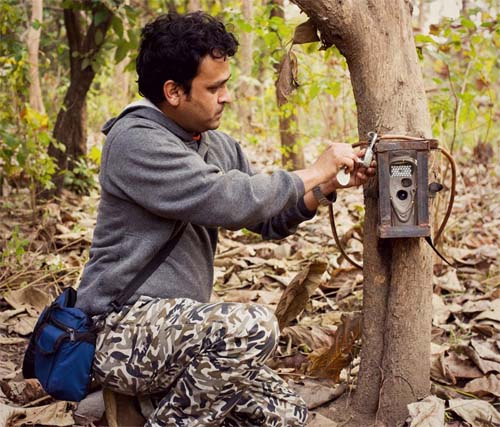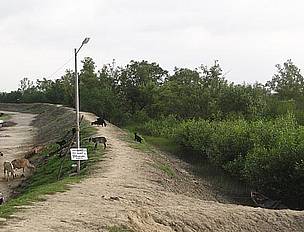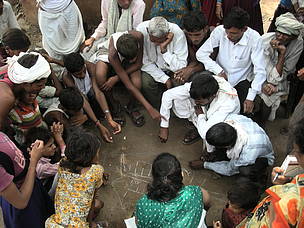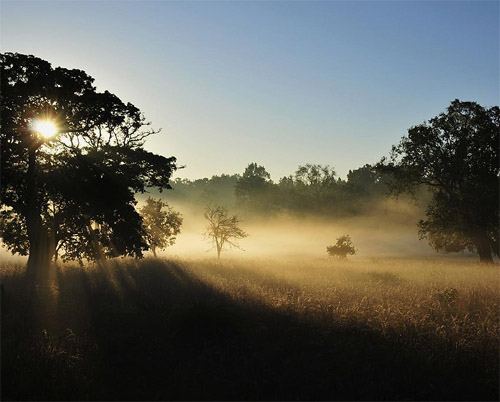HOW WWF INDIA IS SECURING SAFER HAVENS FOR WILD TIGERS?
We have been working for close to five decades to protect wild tigers in the country. Having an on-ground presence in most of the tiger landscapes in India, we work in collaboration with many stakeholders. These include various state forest departments, local communities, partner organisations, and media, among others.

Tracking, tracing, and monitoring the big cat
Found in dense forests, grasslands, and mangroves to snow-capped mountains - these elusive big cats are hard to spot and challenging to track. We work with state forest departments and the NTCA to monitor these feline species across tiger landscapes. Our field teams are involved in setting up camera trappings at great lengths to study the behaviour and movement of tigers. Such efforts will help estimate population size, trends, and other demographics for tigers, co-predators, and prey.

Empowering governmental agencies
We always believe in equipping various governmental agencies and stakeholders with modern patrolling technology and infrastructural tools to protect tigers. Some of our key actions include providing patrolling vehicles, field clothing such as jackets, boots, flashlights, metal detectors, GPS units, and walkie-talkies, among others, to many state forest departments. Additionally, we also help construct anti-poaching camps and wireless towers to tackle poaching issues in the country.

Reducing negative human-tiger interaction
We work closely with local communities living around tiger habitats to reduce negative human-tiger interactions. Likewise, immediate financial support is provided as interim relief to victims in case of loss of cattle and ex-gratia payment during an unfortunate human injury or death event. This interim relief helps appease sudden anger and controls the retaliatory killing of tigers by the local communities who have suffered losses.

Working with local communities
Communities are at the heart of our tiger conservation efforts. The success of our tiger conservation measures depends on the active engagement of local communities living around Tiger Reserves. Our comprehensive sustainable livelihood programmes encourage and enable local communities to reduce their high dependency on forests for natural resources.

Securing critical wildlife corridors
WWF India works in critical tiger corridors connecting 21 Protected Areas across India. Our extensive corridor conservation initiatives help connect essential wildlife corridors and develop their management plans to address more significant and complex conservation issues. Apart from that, we continuously engage with multiple government agencies to mitigate existing and planned linear development impacts.

Curbing illegal wildlife trade
We also jointly work with partners such as TRAFFIC India and Wildlife Crime Control Bureau to detect and curb illegal wildlife trade. Our combined efforts aim to monitor and investigate illicit wildlife trade, and provide information to stakeholders for effective conservation policies. Other interventions include conducting regular capacity building workshops for enforcement agencies on wildlife monitoring, wildlife law, anti-poaching, illegal wildlife trade and use of advance technology to combat poaching.
